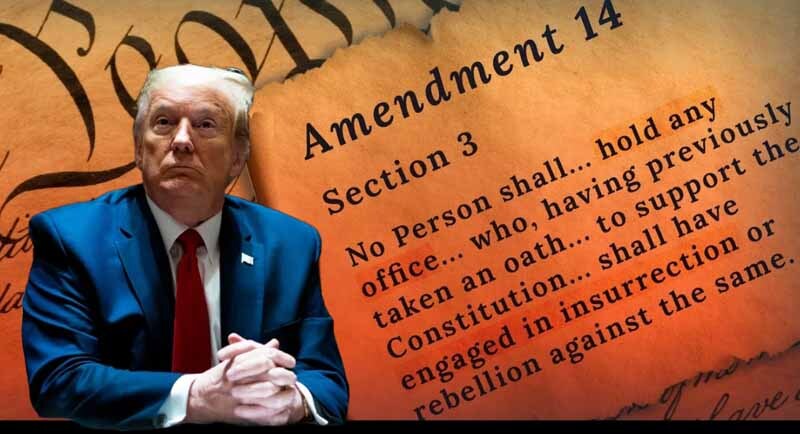
Posted by - admin \
September 8, 2023 \
Filed in - Arts & Culture \
Trump 2024 14th Amendment Section 3 \
5.3K views \ 0 reviews
DLnews Politics:
A challenge has been made to bar the former president from 2024 ballots, and he has requested that the case be moved from state to federal court. The lawsuit was filed by Citizens for Responsibility and Ethics in Washington on behalf of six Colorado voters, citing the 14th Amendment's ban on insurrectionists holding public office. The lawsuit aims to block Trump's name from being included on the 2024 presidential ballot in Colorado.
There are concerns that President Trump's statements could influence the jury pool in the case against his former campaign manager, Paul Manafort. Special counsel Jack Smith filed a motion on Tuesday claiming that Trump's repeated denials of wrongdoing and lies about dealings with Russia could prejudice the trial, set to begin on October 4th. Some liberal groups and legal scholars also advocate using a clause in the 14th Amendment, Section 3, which prevents those who engage in insurrection or rebellion against the Constitution from seeking office. This clause has only been used a few times since the 1860s.
While several fringe groups have launched thinly written lawsuits in a handful of states claiming that the clause makes Trump unfit to run for office, Wednesday's case is the first by a nonprofit with significant legal resources. It could set a dangerous precedent, with legal experts warning that if other groups launch similar challenges, the Supreme Court might have to consider how the constitutional clause applies in a modern context.
If the effort to prevent Trump from running for office is legally successful, a consensus decision by the Supreme Court would be necessary to overturn the longstanding interpretation of the clause by lower courts. However, this outcome is improbable, especially with the current conservative majority on the bench. Even if it were to happen, the justices would need sufficient time to assess the matter and reach a unanimous verdict, which would not be in effect until after the GOP primaries and the November general election.
Currently, the most viable option for individuals who support the constitutional challenge is to pursue legal action in state courts across the United States. If successful, these suits may be heard before the end of the year. However, this approach could potentially result in conflicting rulings and a Supreme Court battle that may only be resolved after Trump's second term has begun. Despite these challenges, some challengers may still attempt to pursue legal action. However, a judge has already ruled that they still need to meet the high legal requirements necessary to challenge Trump's eligibility in court. New lawsuits will likely be filed in states where the challengers have legal standing in the coming months.

Desert Local News is an invitation-only, members-based publication built on fact-checked, non-biased journalism.
All articles are publicly visible and free to read, but participation is reserved for members—comments and discussion require an invitation to join.
We cover local, state, and world news with clarity and context, free from political agendas, outrage, or misinformation.
Comments